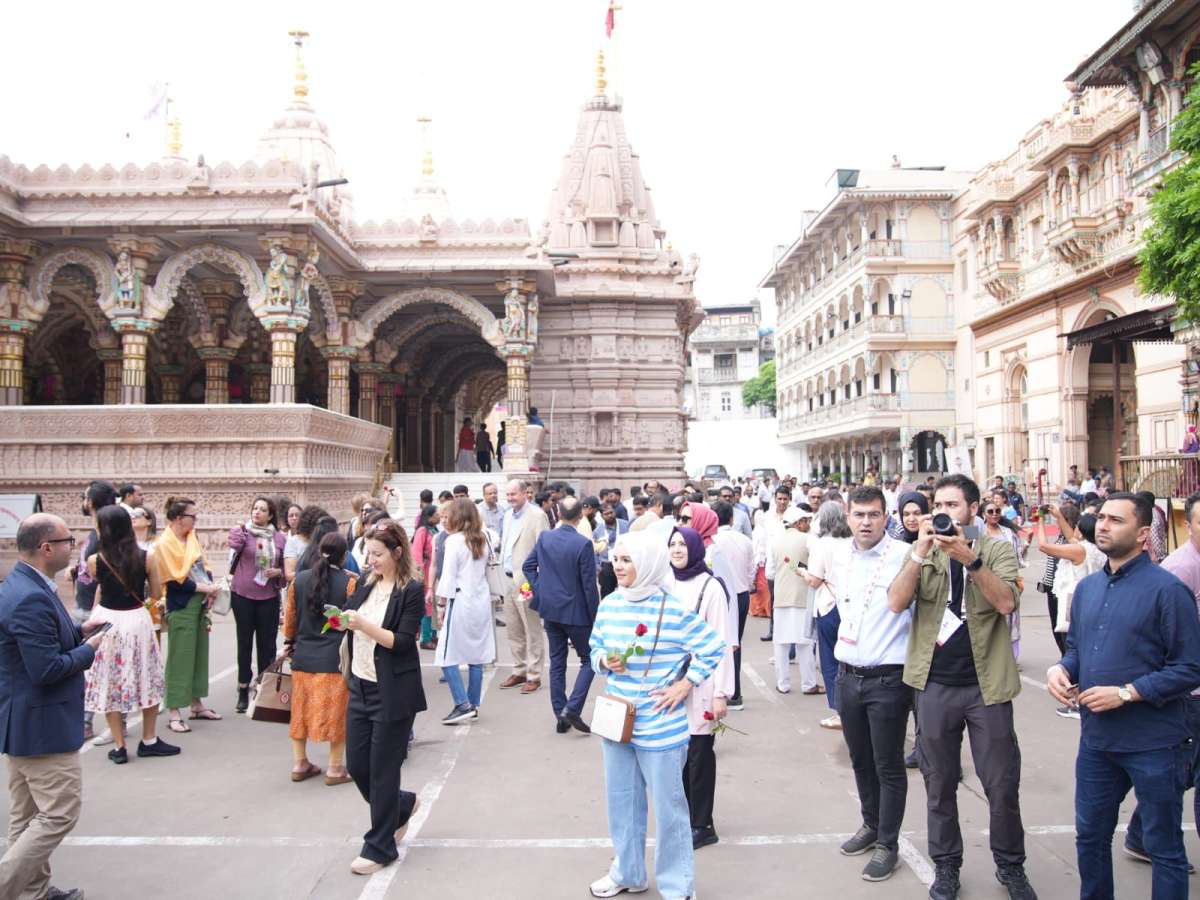Government insiders confirmed to ET that the Chinese side expressed reservations on the issue in almost every meeting…reports Asian Lite News
China is learnt to have opposed the inclusion of ‘Vasudhaiva Kutumbakam’ – the Sanskrit phrase from the Maha Upanishad which is the Indian presidency’s G20 theme – in the G20 Energy Ministers’ Outcome document and Chair’s Summary on Energy Transitions’ issued last month besides in several other similar G20 documents.
China argued that the G20 documents could not use the term ‘Vasudhaiva Kutumbakam’ in the official text as it is in Sanskrit, which is not one of the six official languages recognised by the United Nations.
It is learnt that most participant nations weighed in favour of India on the matter with some even observing that the theme was the prerogative of the Presidency and host nation. However, it is gathered that the Chinese side did not agree to the inclusion of the Sanskrit adage. Sources in the G20 Secretariat confirmed the Chinese side are ‘opposed to welcoming or endorsing this as a concept’. However, its mentions ‘in context’ is not objected to by them, sources indicated.
The final G20 document – Outcome Document and Chair’s Summary for Energy transition – finally only carried the English translation of the concept of Vasudhaiva Kutumbakam – ‘One Earth, One Family, One Future’.It reads- ‘We, the G20 Energy Ministers, met under India’s G20 Presidency, with the theme ‘One Earth, One Family, One Future’ in Goa, India, on 22 July 2023.’ The Sanskrit phrase though is retained in the logo/letterhead of each document.
However, it is not just the Energy Transition G20 official document that has dropped the Sanskrit phrase.
The majority of the Outcome documents issued so far – from the finance ministers meeting, education ministers meeting, Tourism, Environment, Labour & Employment – all only mention ‘One Earth, One Family, One Future’ as the Indian presidency’s theme in the official text, skipping the phrase ‘Vasudhaiva Kutumbkam’.
Government insiders confirmed to ET that the Chinese side expressed reservations on the issue in almost every meeting.
The Foreign Minister’s Outcome document is an exception as it does include the Sanskrit phrase. India describes the theme of its G20 Presidency – “Vasudhaiva Kutumbakam” or “One Earth · One Family· One Future” as one that affirms the value of all life – human, animal, plant, and microorganisms – and their interconnectedness on the planet Earth and in the wider universe.
The Sanksrit maxim from a ‘shloka'(verse) in the Maha Upanishad essentially means that the entire world is one family. It is considered one of the most profound spiritual and philosophical thoughts found in ancient Indian scriptures and the adage is also engraved at the entry gate to the Central Hall in the current building of Parliament.
“The logo and the theme together convey a powerful message of India’s G20 Presidency, which is of striving for just and equitable growth for all in the world, as we navigate through these turbulent times, in a sustainable, holistic, responsible, and inclusive manner. They represent a uniquely Indian approach to our G20 Presidency, of living in harmony with the surrounding ecosystem”, India’s G20 website states.
ALSO READ-‘South Africa’s BRICS initiative align with India’s G20 priorities’

Leave a Reply